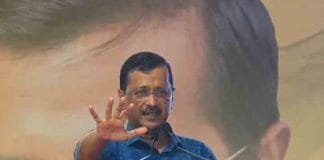The Vice President of India Shri M. Hamid Ansari has said that Social etiquette no longer encourages mention of lineage, except of a certain kind. Thus it would suffice to say that Khwaja Ahmad Abbas’s genes exhibited scholarly traditions worthy of citation in any company. Delivering Khwaja Ahmad Abbas Centenary Lecture on “Literature, Art and Social Awareness” here today, the Vice President said that Khwaja Ahmad Abbas has recorded for posterity his effort as a student in Aligarh to board a train just to talk to Jawaharlal Nehru in his railway compartment; the conversation – somewhat halting – ended with a request to sign the autograph book. A hurried inscription followed: “live dangerously. Jawaharlal Nehru”. He took this to heart and described his relationship with Nehru as “a long love affair”.
He said that Abbas, in his own words, was “a communicator of ideas”. He did this as a journalist, short story writer, a novelist, a film critic and film script writer. He is considered one of the pioneers of Indian parallel or neo-realistic cinema having penned films like Neecha Nagar, Jagte Raho, Dharti Ke Lal, Awara, Shri 420, Mera Naam Joker, Bobby and Henna.
The Vice President said that in the first case of the kind in the Supreme Court of India, it was argued on behalf of Abbas that pre-censorship of films is offensive to freedom of speech and expression and that the rules relating to it were vague, arbitrary and indefinite. The Bench, headed by Chief Justice Hidayatullah, allowed the petition on the ground that treatment of motion pictures must be different from other forms of art and expression. He held that the clarifications and assurances given in the hearings by the Solicitor General and procedural safeguards accepted by the Government “will make censorship accord with our fundamental law.” This, in effect, curtailed government’s arbitrary exercise of censorship powers.
He said that Khwaja Ahmad Abbas subscribed in his life and work to an approach that was catholic rather than sectarian, and modernist rather than obscurantist. He revelled in India’s cultural heterogeneity and celebrated it in his life and work. We find in his autobiography a delectable description of his film crew’s journey in a freight train and singing three songs: Jana gana mana, Saare jahan se achcha and Dekhna hai zore kitna baazu-e-qaatil main hai.
The Vice President opined that the celebration of his centenary is to be viewed as part of our societal obligation to transmit the best and noblest in our tradition to the next generation.

















